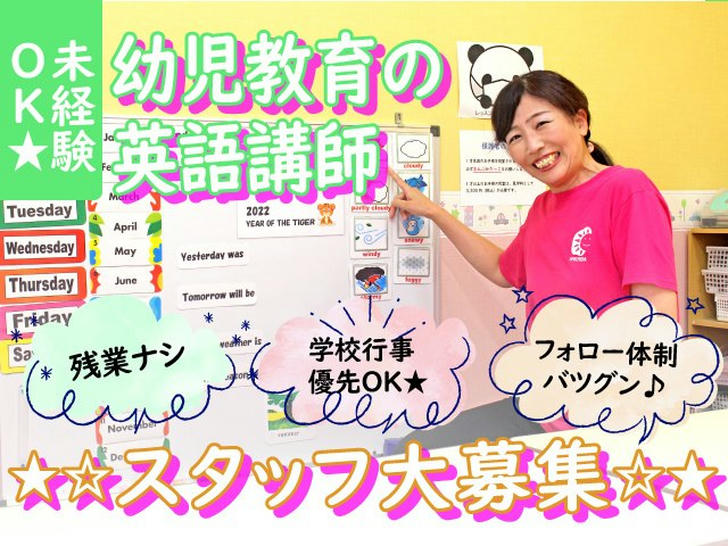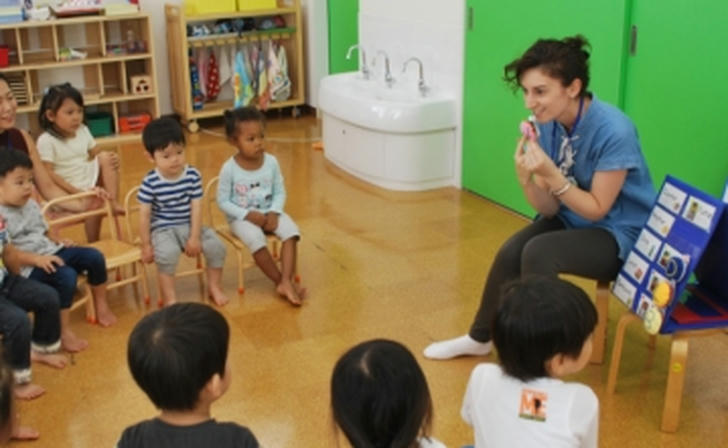🌟 Japanese Kindergartens Seek English Teachers: No Experience Needed
With the advancement of globalization, the demand for English education in kindergartens across Japan has been steadily increasing. According to data from the Ministry of Education, Culture, Sports, Science and Technology, as of 2025, there are over 30,000 kindergartens in Japan, many of which have introduced English curricula to broaden children's international perspectives.

📊 Industry Status
Kindergartens are the primary form of early childhood education in Japan, catering to children aged 3 to 5. In recent years, the Japanese government has placed a high value on international education, leading to a growing demand for English teachers in kindergartens and providing ample development opportunities for those interested in early childhood English education.
Data released by the Ministry of Education, Culture, Sports, Science and Technology in 2018 shows the following age distribution among kindergarten teachers in Japan:
Under 25: Full of energy and creativity, able to quickly adapt to new technologies and teaching methods, and particularly suitable for stimulating children's interest in learning through games and interactions.
25 to Under 30: Combine the energy of young teachers with a certain amount of teaching experience, capable of designing innovative curricula and establishing good communication with children.
30 to Under 50: As the backbone of the industry, accounting for about 60%, equipped with rich teaching experience and management skills, and able to balance teaching with children's emotional management.
50 to Under 60: Accounting for about 20%, with deep educational experience and patience, able to help children overcome learning difficulties through detailed guidance.
60 and Above: Accounting for about 7%, known for patience and approachability, able to provide children with stable support and cultural heritage.
Teachers from different age groups each have their own advantages, together creating a diverse learning environment for children. No age restrictions apply for applicants—all are welcome to apply and contribute to the educational journey.
💰 Salary and Benefits
Salary Levels
Full-time Teachers: Annual salary of approximately 4,000,000 to 6,000,000 yen, with senior teachers in international or large kindergartens potentially earning over 7,000,000 yen.
Part-time Teachers: Monthly income of approximately 100,000 to 150,000 yen, varying depending on teaching hours and payment standards.
Benefits include four types of insurance: pension, health, unemployment, and workers' compensation. Some kindergartens also provide housing and transportation allowances, 10 to 20 days of paid leave per year, year-end and New Year holidays, and regular career development support training.
📚 Recruitment Requirements
A Japanese kindergarten teacher certification or an international English teaching qualification (such as TEFL, CELTA, or DELTA) is required. Preference is given to those with experience and proof of成果in early childhood English education. Fluency in English is required, typically native English speakers or non-native speakers with native-level proficiency. A basic level of Japanese (N2 or N3 level) is also required. Personal qualities should include approachability, patience, creativity, organizational skills, and cross-cultural communication abilities. Additionally, kindergartens provide a safe working environment with necessary safety facilities to ensure teachers work in a healthy and clean setting.
🌱 Employment Conditions and Training Opportunities
Even without experience, kindergartens offer pre-service training and paid on-the-job training to help new teachers quickly master teaching skills. For example, a kindergarten in Nagoya provides a one-month training course for new English teachers, covering English teaching methods, child psychology, and classroom management skills.
⏰ Working Hours
Working Hours: Afternoon (1:00 PM – 7:00 PM)
🌞 In the afternoon sessions, you will teach 2–3 classes per day.
*Working hours and days are flexible
🌟 You will primarily teach afternoon classes, with a minimum of 2 days per week.
Job responsibilities include creating an environment where children naturally learn English through English songs, games, and crafts.

❓ Applicant FAQ
Is Japanese Language Ability Required?
Having a certain level of Japanese language ability is helpful for work and daily life. It is recommended that applicants reach at least a basic level of daily communication before taking up the position.
Is There Room for Career Development?
The career development path is clear. Teachers can be promoted to senior teachers or principals by enhancing their professional level and can participate in curriculum design and textbook development.
Is it Difficult to Obtain a Visa?
English teachers who meet the conditions can obtain a work visa without difficulty, and kindergartens usually assist with the relevant procedures.
📝 Real-life Case Studies
"Seeing the children communicate in English gives me a great sense of achievement. The support of my colleagues and the rich resources allow me to work with peace of mind."
— Sarah (American, Kindergarten English Teacher, 2 years of experience)
"The children's enthusiasm for learning English also inspires me, making every day fulfilling."
— David (Canadian, Kindergarten English Teacher, 1 year of experience)
We hope that the above information provides a comprehensive and accurate reference for those interested in applying for positions as English teachers in Japanese kindergartens. As an English teacher in a Japanese kindergarten, you can not only impart knowledge and cultivate children's English abilities but also experience and integrate into Japanese culture, embarking on a wonderful career journey.
Kindergarten English Teacher
